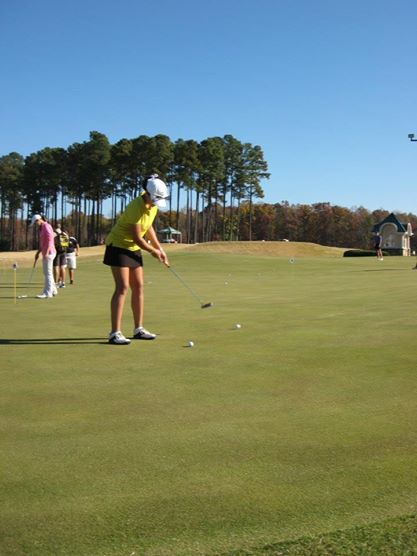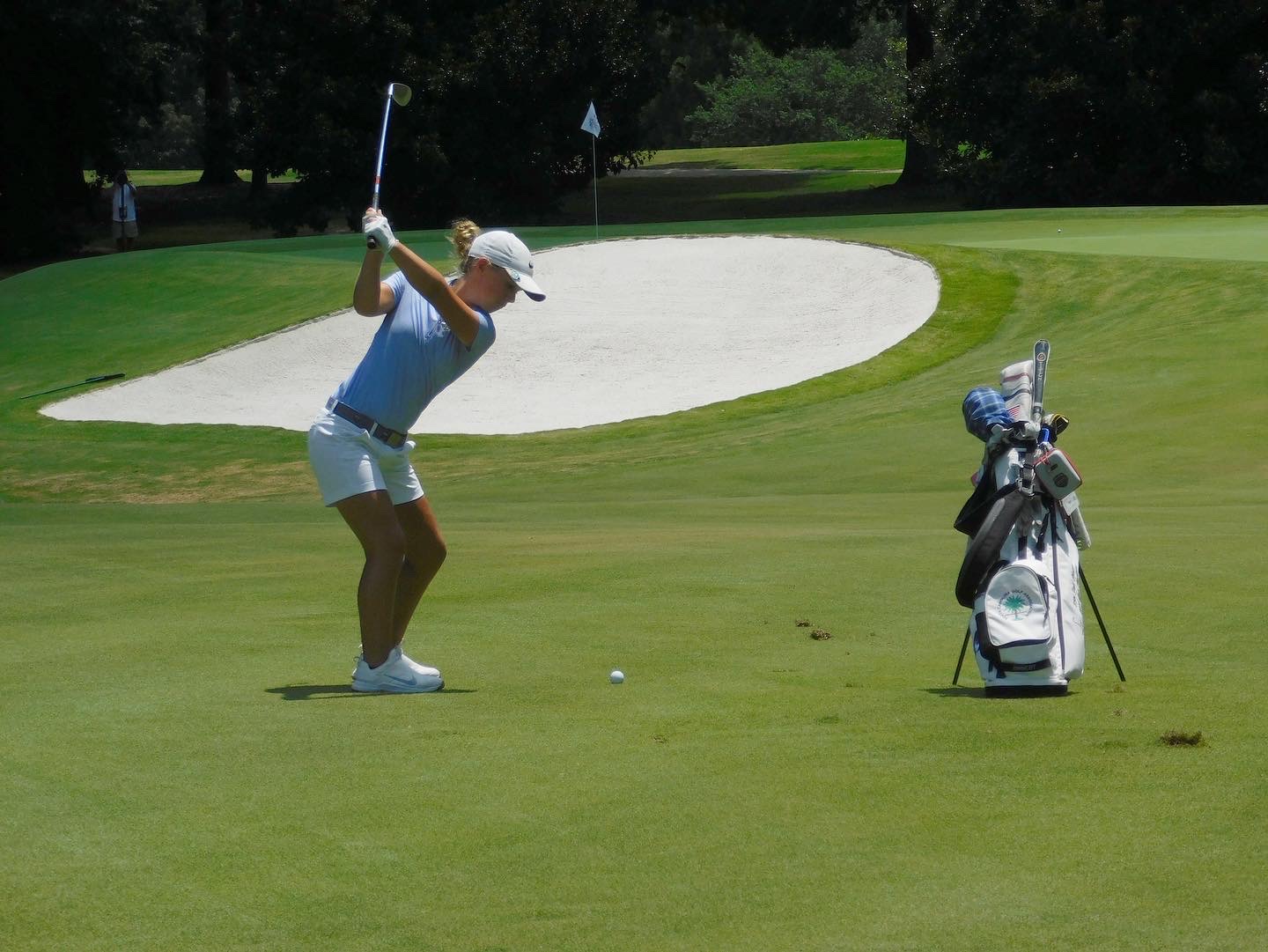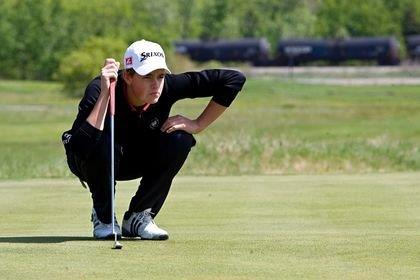For those who may follow my social media (@bjacksongolf) you probably saw that I decided to play some competitive golf again for the first time in almost 8 years. My last full season was in 2009 where I played 11 LPGA Tour events that year and the rest on the Symetra Tour, then I only played a handful of events on the Symetra Tour in 2010 and officially gave up full time playing by 2011 so it has been quite a while since I played competitively. And within those 8 years since “retirement” I don’t exactly play much golf period, except a few charity outings every year so this was quite the decision to play some competitive golf again.
So for the last 4-5 weeks, I tried to commit some time each week to practicing and playing some rounds of golf. I switched my workouts from training for strength/conditioning competitions to more golf specific workouts with my trainer at Knight Performance Factory I got a lesson from Robert Linville of Precision Golf School and worked a little on my impact position. I worked on some fundamental and performance-based putting and short game drills. Because my priorities are much different these days with my business being my main focus it was difficult to manage what I wanted to accomplish during the time I had but I felt I did what I could.
While we all tend to mature and see things differently when looking back, I have worked really hard to change my mindset and my approach to hard work, discipline, and dedication. For most of my life, I was the type of athlete who thought I should see success because I happened to be good at something. I thought I should be rewarded simply for my talent. I thought I could take a lackadaisical approach to be a professional golfer and expect to play well among the best in the world. Clearly, I was wrong!
As a kid, I spent A LOT of time at the golf course but I didn’t understand what discipline and structure meant when it came to practice and my game. In college, I learned more about what quality practice and commitment looked like but I still never worked as hard as I should and I didn’t have my priorities in the right place, especially given the level of expectation at a program like Furman. And as I entered the world of professional golf, despite earning full LPGA status right out of college, my mindset did not improve even tho I continued to pursue a career as a professional golfer.
So my decision to play some competitive golf, even with just a little time to prepare, came with a commitment to utilize a better mindset and see what it felt like when I stepped on the 1st tee to compete again. While this has been just a very short “experiment” I did learn a few things that I wanted to share with you.
- Make a schedule – My priorities during this period of my life are much different than they were when I was playing full time so it was hard to balance what needed to get done with my business, keeping up with my players/clients or wanting to spend time with my family/friends while also wanting to practice or play golf. So my schedule each week looked much different than it would for someone whose top priority is to play college or professional golf but I did commit to planning out my week with workouts, practice/course time, business work and other commitments or activities. I took a look at the weather at the start of the week to try and avoid my golf days from being the higher chance or rain/storms. I knew what days I had training sessions and made sure to not reschedule those unless absolutely necessary (back in my playing days I was kind of known for finding ways to skip those sessions). While I didn’t get in nearly as much practice/playing time as I set out to at the beginning of this experiment, I knew when I stepped on the 1st tee that I had committed as much time as I could and I made sure that time was focused on quality.
- Don’t make excuses – If you create a schedule and things out of your control change that schedule, then just accept that and move on. But whatever you do, don’t make excuses. Ask yourself if there was a way you could have avoided it or if there is a way you can make up for missing something or not doing as well as you should have. If so then either learn from what you could have done differently, or make sure you find a way to make up for it. But don’t make excuses for things that were under your control.
- Make your preparation HARD – My college coach who is now the Alabama women’s golf now, once said that he “makes practice so hard for the girls that playing seems easy.” If you learn to make your preparation hard and hold yourself accountable then once you step foot on the 1st tee you will know that you are prepared and can play with much less fear and timidness. If you grind hard during your practice and don’t just spend time going thru the motions, then you develop the confidence needed on the course. If you work on your weaker areas and put yourself in spots that aren’t easy (practice out of divots, off sidehill lies, buried lies in the bunkers, etc) and set goals to accomplish then you will be prepared for anything the course throws at you and any pressure situation you may find yourself in.
- Don’t beat yourself up – Be VERY hard on yourself during your preparation time but once you get on the course you have to accept things as they go. If you did what you set out to do in preparation, then you did what you could and you have to accept the outcome once you are in competition. If you look back and realize you didn’t prepare as well as you should have then learn from that for the next time. But accept what it is once you get on the golf course and don’t beat yourself up when things don’t go your way.
- Don’t expect perfection – Bad shots and bad holes are going to happen. Have you watched some of the pros hit the ball all over the place?!? Some of the places the pros end up would make you think they had never played golf before, but they have prepared for situations like those and know they have the ability to get themselves in the hole in the least amount of strokes necessary. Your shots are rarely going to be perfect. Majority of them are going to be mishit or misjudged. It’s accepting them all for where they end up and making the most of what you have to work with.
Brandi Jackson is the RecruitPKB College Consultant. She can be reached at bjackson@pkbgt.org








Leave A Comment